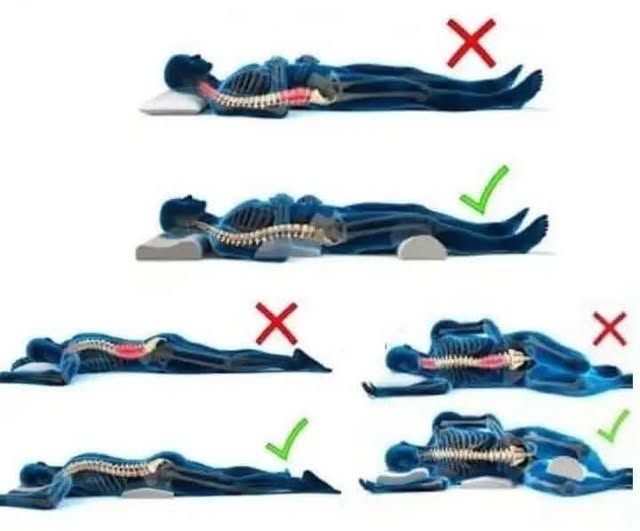When most of us think about improving our health, we usually focus on eating better, exercising regularly, or managing stress, but there’s one critical aspect of wellness that often gets overlooked—your sleeping position. It’s something you do every single night, yet the way you sleep can have a huge impact on everything from your spinal health to digestion, breathing, and circulation.

Most people spend about a third of their lives in bed, so even a minor issue in how you position your body can add up to serious discomfort or long-term health concerns over time. Ever wake up with a stiff neck, sore back, or that strange numb feeling in your arm? These aren’t just random aches—they’re often the direct result of poor sleeping posture. And even if you’re logging a solid eight hours of sleep each night, your sleep quality could still be taking a hit depending on how your body is aligned while you snooze. Some sleeping positions might feel great in the moment, but they can actually wreak havoc over time.
One of the biggest culprits is sleeping on your stomach. While it might seem cozy, it puts strain on your neck and spine because your head has to twist to the side just to breathe, and your back flattens unnaturally. This can lead to chronic neck pain, backaches, and headaches. Then there’s the habit of tucking your arms overhead or under your pillow. This can compress nerves and restrict blood flow, causing that familiar “pins and needles” sensation. Over time, this could result in more serious issues like numbness or shoulder problems. Even the popular fetal position, when curled up too tightly, can create pressure on your spine and make deep breathing more difficult. If you like to sleep in this position, try straightening out just a bit to reduce strain.
So what’s the best way to sleep? Experts say sleeping on your left side is the gold standard. It’s especially beneficial for digestion because gravity helps your stomach and digestive organs do their job more efficiently. It also improves circulation, reduces acid reflux, aligns your spine, and can even help people who snore or have sleep apnea breathe more easily throughout the night. Transitioning to this position may take some effort, especially if you’ve been sleeping another way for years, but using supportive tools like a body pillow or wedge can help your body adjust over time. You don’t need to overhaul your bedroom to improve your sleep posture either. A few simple changes can make a big difference. Start by choosing the right pillow—your head should stay level with your spine, not bent up or down.
Side sleepers should opt for a firm pillow, back sleepers need a medium-loft option, and stomach sleepers, if they can’t break the habit, should go for the flattest pillow possible. For side sleepers, placing a pillow between the knees helps keep the hips and spine aligned, easing pressure on the lower back. Investing in a quality mattress also goes a long way. A good mattress supports your spine’s natural curves—too soft and your body sinks out of alignment; too firm and you’ll feel pressure at your joints. Memory foam or hybrid mattresses often strike the right balance. Training your body to sleep in a new position may feel strange at first, but sticking with it can lead to noticeable improvements. Try starting in your desired position each night, using pillows to prevent turning, and paying attention to how you feel when you wake up. Morning soreness is your body’s way of signaling something isn’t quite right. If adjustments to your posture and bedding still don’t relieve your discomfort, it might be time to talk to a healthcare provider like a chiropractor, physical therapist, or sleep specialist, especially if the issue is persistent. Sometimes deeper alignment problems or sleep disorders are at play and need professional attention. At the end of the day, your sleeping posture is just as important as your workout routine or your diet. It plays a vital role in your overall health and well-being. By being more intentional with how you sleep, you can reduce pain, improve your energy, and give your body the restorative rest it deserves. So tonight, before you doze off, take a moment to check your alignment, fluff your pillow, adjust your spine, and choose a position that truly supports your health from the inside out.





